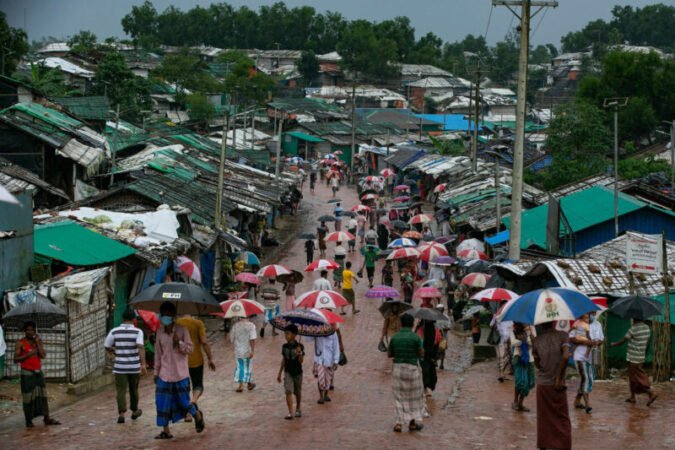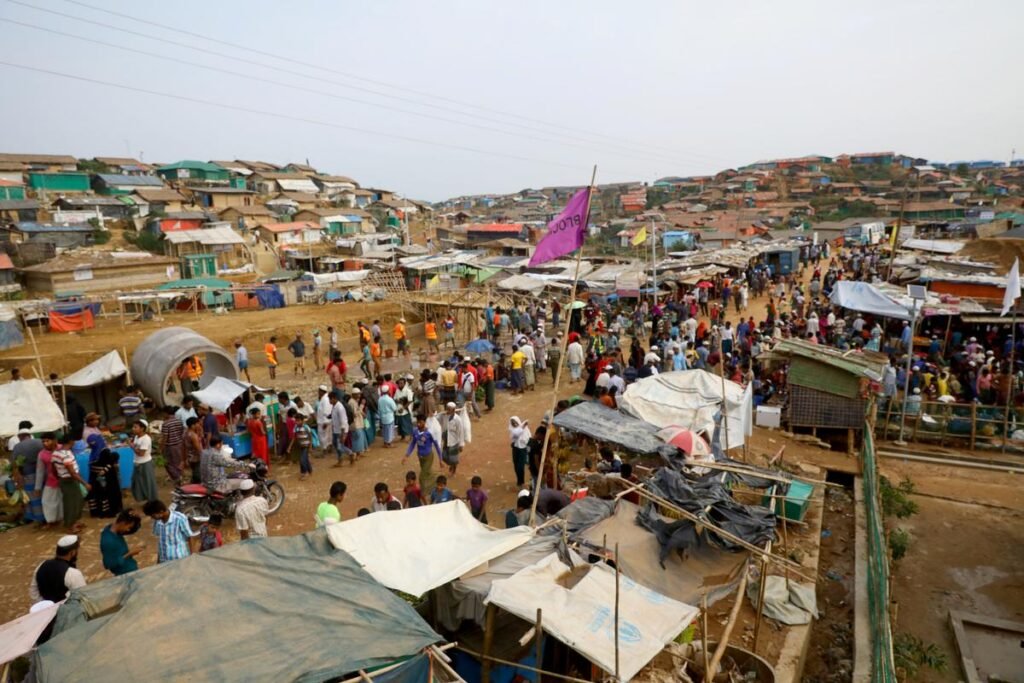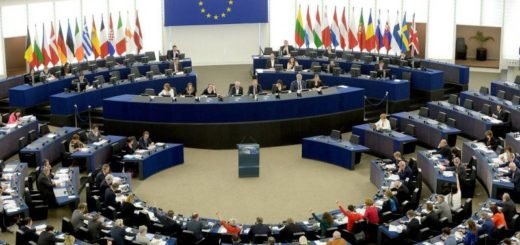Rohingya Repatriation: Why the Process is Viewed with Skepticism

Introduction
As Myanmar starts repatriating the Rohingyas from Bangladesh with China as the mediator, it is doubtful whether conditions suit their return. “The government in Myanmar must build trust and ensure safety for Rohingya refugees, Bangladesh’s refugee commissioner has said following calls to suspend the community’s potential return to their homeland” (Arab News, 2023). Recently the Junta dissolved the National Party of Aung San and has also been carrying out massacres against those voicing against the Junta. In these circumstances, it does not look good to repatriate the Rohingyas to a place where there is still fear of their persecution. Repatriation should, by all means, be voluntary and safe. In 2017 when the most significant displacement of the Rohingyas happened, the democratic government ruled the country. Aung San, the leader of the democratic party and advocate of Human Rights, remained silent about the persecution. The Army that started the crackdown defended its acts by stating that it was against the militants and did not harm the civilians. Conditions worsened after the 2021 military takeover of the government, where any opponent of the Junta was silenced.
Background
Hannah Arendt espoused the phrase ‘the right to have the right’, which meant that no matter from which corner of the world we are, who we are and where we go, we all have the right to have fundamental rights. As the Ukraine war continues, the world is experiencing many people moving from their homelands in search of refuge in the neighbouring countries. The people in those countries welcome these ‘refugees’ with open arms and smile on their face as they know that these ‘refugees’ are a victim of war and face threat to their lives. However, what about those populations forcefully displaced from their home country by their governments and now stateless? The people referred to here are the Rohingyas, the second largest stateless group in the world now. The group who reside in the western side of Myanmar, in a place called Rakhine, have never been recognised by the government and the people of Myanmar.

Who are the Rohingyas?
Myanmar is a country located on the southeast side of India. It shares borders with India, Bangladesh, China, Laos and Thailand. It is a country with diverse ethnicity, and Buddhism is a significant religion followed there. The Rohingya are a Muslim ethnic minority. They are an Indo-Aryan group of people who are ethno-linguistically closer to the people of India and Bangladesh rather than the Sino-Tibetan people of Burma. They trace their origin to the Arabs and the Turks and claim they moved to the Arakan region in the 14th or 15th century. Also, during British rule, many Bangladeshis were brought as labourers to work in the Arakan region and have resided there since. The Myanmar government claims they are illegal immigrants from Bangladesh and have not been granted citizenship. They did not find any place in the 1982 Citizenship law, and their persecution began in the 1960s when the military took over the government.
They have been suffering persecution at the hands of the officials since independence, with attacks made in four phases over a continuing period. The latest was in 2017, which led to their highest displacement, and many fled to neighbouring countries like Bangladesh, Thailand and Malaysia. Some crossed and came over to India too. Bangladesh hosts the largest Rohingya population in Cox’s Bazaar with deplorable conditions, stuffed in poor hygiene and food camps. There have been fires leading to the destruction of shelters made of bamboo and plastic sheets rendering them shelter less. When they came to India, they were identified as infiltrators or terrorists by some officials; however, there is no evidence to verify the claim. Many still reside in different parts of India, fearing being deported, but are taken care of by the UNHCR and some NGOs. Their plight will remain forever until addressed through proper mechanisms.
International Responses
Bangladesh condemned the Burmese government for using excessive force to drive away the Muslims into the Bangladeshi territory. The Burmese government said they were illegal settlers intruding into its territory (Kipgen, 2014). The United Nations Human Rights Council in 2017 called their situation ‘a textbook example of ethnic cleansing.’ Other countries condemned the Junta’s actions towards the Rohingya, but no concrete action was taken to address their plight. India, too, stated that it was an internal affair of Myanmar and that it should not interfere. The ICJ case, lodged by the small Muslim-majority nation of The Gambia, in West Africa, on behalf of dozens of other Muslim countries, called for emergency measures to be taken against the Myanmar military, known as Tatmadaw until a fuller investigation could be launched however, Aung San Suu Kyi rejected allegations of genocide when she appeared at the court in December 2019 (BBC news, 2020).
A Possible Solution
Rakhine has been facing brutal ethnic cleansing; however, rich in natural gas, the region interests India and China. The conflict in Rakhine, fuelled by major power competition and the Rohingya crisis, may have significant ramifications beyond Myanmar’s borders (Brewster, 2022). Political persecution, ethnic and religious conflicts and poverty have contributed to the growing number of refugees (Ullah, 2014). One form of discrimination is depriving nationality and political and civil rights (Ullah & Chattoraj, 2018). These group of people were never given their fundamental rights. They have faced torture and fear, their houses burnt by the military, and women raped and killed. These incidents started after the military took power in the 1960s and have continued ever since, even after the civilian government came to rule in 2017. Hence no matter which form of government is ruling the country, the safety of the Rohingyas remains uncertain in Myanmar. Conditions look gloomy even though the Junta claims to take back all the Rohingyas. Out of millions of displaced, only thousands have been listed to be taken back. The question remains about the others. However, what happens after they have returned to Myanmar remains a question. As the world watches the repatriation process including, India who is keeping a close watch on the events taking place in her backyard, what first needs to be done is to ensure their fundamental human rights are guaranteed, life and liberty protected, and all rights given as any other citizen of the country. Until then, the repatriation should be closely watched and halted temporarily if the situation does not fit.
REFERENCES:
Brewster, B. (2022, November 8). How China, India, Bangladesh could be drawn into Myanmar’s conflict. https://www.lowyinstitute.org/the-interpreter/how-china-india-bangladesh-could-be-drawn-myanmar-s-conflict
Kipgen, N. (2019). The Rohingya Crisis: The Centrality of Identity and Citizenship. Journal of Muslim Minority Affairs, 39:1, 61-74, DOI: 10.1080/13602004.2019.1575019
Myanmar Rohingya. (2020, January 23). Myanmar Rohingya: What you need to know about the crisis. https://www.bbc.com/news/world-asia-41566561
Shehab, S. (2023, April 04). Bangladesh says Myanmar must build trust, safety for Rohingya repatriation. https://www.arabnews.com/node/2280781/world
Ullah, A. (2014). Rights, Safety, and Identity: The Context of Forced Mobility in
The MENA. In S.T, Williams (Ed.). Refugee Politics in the Middle East and North Africa. Human Rights, Safety, and Identity (1st ed., pp.3). Palgrave Macmillan.
Ullah, A. & Chattoraj, D. (2018). Roots of Discrimination Against Rohingya Minorities: Society, Ethnicity and International Relations. Intellectual Discourse, 26:2 (2018) 541–565. https://fass.ubd.edu.bn/staff/docs/AU/journals/Ullah-Chattoraj-2018.pdf


















